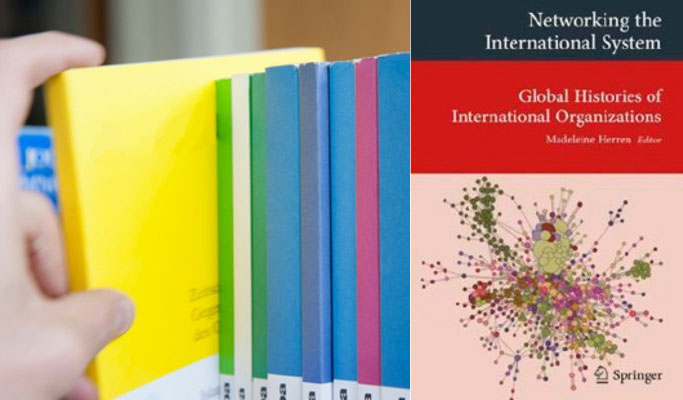/ Research
New Book on Global Histories of International Organizations

“Networking the International System” is the title of a new book edited by Prof. Dr. Madeleine Herren-Oesch. The publication is concerned with the local impact of international organizations, approaching the topic from a perspective that aims to overcome Eurocentric patterns of analysis.
The contributions in “Networking the International System” originate from different disciplines and areas of study and discuss the respective topics through a global perspective. Until now, such an approach has been a blind spot in scholarly research on international organizations. Using Asian and Western examples during the 1930s as a historical reference, the contributions question the role of international organizations during conflicts, wars and crises. In doing so, the authors provide insights into the function of those organizations as peacekeeping forces during the 21st century.
The book is divided into four sections. The first part discusses the historicity of international organizations and the availability of sources. Part two deliberates on Eurocentrism and science policy, considering the convergence of newly created epistemic communities and old diplomatic elites. The third part sheds light on international organizations as platforms, expanding the field of research from the diversity of organizations to the patterns of global governance. The fourth and final part turns to the question of how international organizations invented and introduced new fields of action, pointing to the antithetic role of standardization, the preservation of cultural heritage and the difficulties in reaching a non-Western approach.
“Networking the International System: Global Histories of International Organisations” is part of the book series "Transcultural Research – Heidelberg Studies on Asia and Europe in a Global Context". The series presents peer-reviewed books by scholars from both historical and empirical disciplines who are working on new emerging fields that cross existing disciplinary boundaries.
The book was edited by Madeleine Herren-Oesch, director of the Institute for European Global Studies and Professor of History. Madeleine Herren-Oesch’s fields of interest cover European and global history of the nineteenth and twentieth centuries, the history of international organizations, the development of transnational networks and border-crossing civil society activities, research on encyclopaedia, information transfer and information cultures, historiography and transcultural methodologies of history in a digital age.
